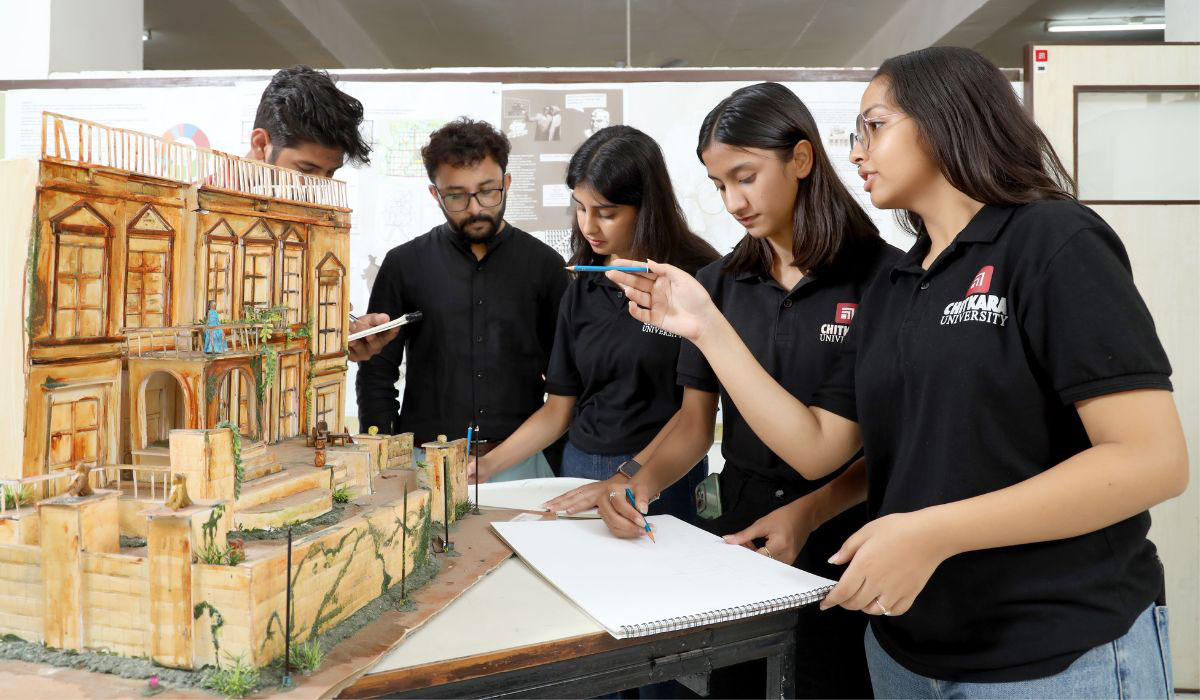Starting a career in Planning & Architecture gives up a world of different job pathways and creative opportunities. Understanding the varied nature of this sector and its requirements is critical for anyone pursuing a Bachelor of Architecture (B.Architecture) program in order to build a successful career path.
Exploring the Varied Landscape of Planning & Architecture Careers
A B.Architecture curriculum can lead to a variety of professional prospects. Graduates have a diverse skill set that includes design competency, technical expertise, and a thorough understanding of architectural concepts. This certification allows you to work in architecture firms, urban planning agencies, construction businesses, interior design studios, landscape architecture firms, and government organizations involved in city planning and development.
Specializations within the discipline of Planning & Architecture provide unique career paths. City design, sustainable development, and land use management are all aspects of urban planning. Sustainable design is concerned with environmentally conscious architectural solutions, with an emphasis on energy efficiency and environmentally friendly construction processes. The protection and repair of historical structures is part of historic preservation. Interior architecture is concerned with the creation of practical and aesthetically acceptable interior spaces. Landscape architecture is designing outdoor spaces that are in harmony with nature and human interaction.
Prerequisites for Pursuing Planning & Architecture:
After finishing a high school education with a strong foundation in mathematics, physics, and creative design ability, aspirant architects often pursue a Bachelor of Architecture degree. Prospective students are frequently required to demonstrate competency in topics such as physics, chemistry, and mathematics. Furthermore, admittance to prominent architectural schools frequently requires a well-crafted portfolio displaying design talents, originality, and new thinking.
Diverse Career Trajectories and Growth Opportunities:
Graduates of a B.Architecture program have a diverse range of employment options to pursue. Architects play a critical role in the design and construction of a wide range of structures, including residential, commercial, and institutional constructions. Urban planners strive to create cities and communities that are sustainable, practical, and visually beautiful. Interior designers create appealing interior environments by combining practicality and beauty. Landscape architects create outdoor settings that incorporate both natural and human features.
Advancements Shaping Planning & Architecture:
Technological improvements will have a significant impact on the future of Planning and Architecture. To conceptualize ideas and speed the building process, architects use sophisticated software such as AutoCAD, Revit, and 3D modeling tools. Furthermore, an increased emphasis on sustainability has resulted in the incorporation of eco-friendly designs, fostering the construction of energy-efficient and ecologically sensitive structures.
Read this blog post: Is Architecture a Worthy Profession in India?
Finally, a career in Planning & Architecture necessitates a combination of creativity, technical competence, and a knowledge of societal concerns. A Bachelor of Architecture curriculum sets the groundwork for a rewarding career in architectural design, urban planning, interior design, historic preservation, landscape architecture, and other fields. To thrive in this dynamic and developing sector, aspiring architects must establish a strong foundation in design, think creatively, and adapt to technology improvements.
Chitkara University’s 5-Year Bachelor of Architecture program stands as an exceptional avenue for budding architects, emphasizing creativity, historical understanding, and technological innovation. This program integrates theoretical depth with practical exposure, providing students with a well-rounded education that prepares them to excel in the dynamic field of architecture. With a comprehensive curriculum that spans from design principles to construction management and town planning, students benefit from a balanced blend of theoretical knowledge and hands-on experience.
The program’s unique feature lies in its emphasis on creativity and critical thinking, fostering a perfect amalgamation of theoretical study and practical application. Through internships with esteemed architectural and construction firms worldwide, students gain invaluable real-world experience, honing their skills to tackle the challenges of modern society. Chitkara University’s commitment to providing a holistic learning environment ensures that graduates emerge not only as technically proficient architects but also as innovative thinkers capable of crafting exceptional designs and solutions.
Faculty mentorship plays a pivotal role in shaping students’ growth creatively, personally, and professionally. The accomplished faculty, comprising experienced artists, architects, and scholars, collaborate with industry professionals to impart the skills and hands-on experience necessary for a successful career in architecture. The program’s accreditation by the Council of Architecture and endorsement by the All India Council of Technical Education (AICTE) underscores its commitment to offering an industry-relevant curriculum that integrates theory and practice seamlessly. Graduates from Chitkara University’s Bachelor of Architecture program emerge as adept professionals poised to embark on diverse career paths within the field of architecture, equipped to contribute meaningfully to the architectural landscape.






